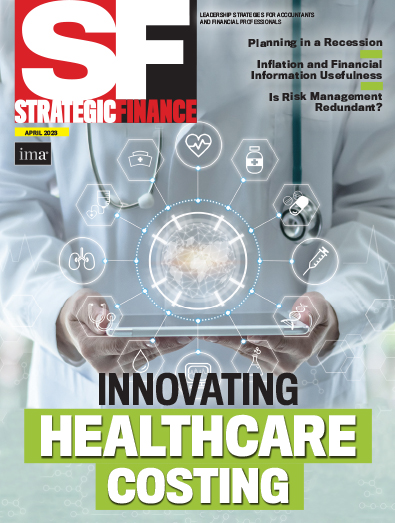Giordano currently focuses her work on the intersection of technology, business, and society.
Giordano began her career at advertising agencies in New York, Los Angeles, and Chicago and, more than a decade ago, founded Play Big, Inc., a strategic inspiration company, where she also serves as CEO.
Giordano is the author of the book Leadering, which outlines how to shift an individual’s approach from dated 20th Century structures to dynamic leadership in the 21st Century and create a brighter future for everyone involved.
Strategic Finance: Can you discuss the five forces shaping the future for business enterprises?
Nancy Giordano: We’re increasingly focused on the demands of rapid digital transformation. As technology and data shifts reshape our businesses and lives, we need to examine our environmental and carbon footprints and actively support more sustainable and regenerative solutions. We also need to ensure equitable and just access to the solutions and opportunities we create and that none are intentionally created at the expense of others while also taking a much broader look at the well-being of all our stakeholders, now and into the future. Finally, we need to better consider, support, and include the voices of the youth population, a constituency that’s often left out despite the fact that they currently make up nearly half the planet.
SF: How do you think the workplace will transform in the next five to 10 years? Have the events of the past three years accelerated any of those changes?
NG: I make the distinction between the “future of work” and the “future of working.” The latter focuses on how we’ll be working in the future, and we have certainly seen big shifts in where that will take place. I believe hybrid and remote work is here to stay—there are so many advantages from a well-being, diversity, and likely even environmental perspective. To do so more confidently, we’ll be seeking better tools, like virtual reality project rooms, more dynamic workflows that balance asynchronous and synchronous work, and environments intentionally designed to support collaborative work and upskilling. We’ll also see more momentum for a shorter workweek—again, early research shows significant lifts in productivity, engagement, and well-being when we rethink the “industrial era clock.” And we’ll also broaden our definition and appreciation of all forms of work, both paid and unpaid, as vital to a successful society as we consider how to better and more equitably distribute the productivity and profit gains made by increasing automation.
SF: In your opinion, what do professionals need to do to prepare themselves for success in the future? What do businesses need to do for their talent to be successful?
NG: We need to acknowledge that we aren’t in a predictable, linear growth, industrial era any longer and begin letting go of the many practices that no longer serve us well. I describe this as the shift from 20th Century leadership that relied on things like hierarchies, silos, and incremental innovation. These are often separating our own values and experiences from the work we’re doing to keep things humming along consistently in the pursuit of relentless growth. Instead, we now need to adopt a different approach—a new mindset—that shifts from narrowly focusing on the financial bottom line of an individual organization in quarterly increments to “leadering,” which systemically focuses on what the future needs and expects, embraces externalities, and works collaboratively inside and outside our organizations and industries to address them. We need to build the capacities that allow us to more confidently sense and respond to our dynamic environments—like incentivizing curiosity, investing in ecosystems of support and learning, doing our own shadow work so we can better listen to and empathesize with others—and jump in faster.
SF: What do you see as the three biggest issues that will shape the future of management accounting?
NG: It seems to me the dashboards of what we need to pay attention to will continue to broaden as we see the value of paying closer attention to the key drivers of long-term productivity, such as well-being, inclusivity, preparedness, strength of relationships, environmental impact, skilled talent, and more. Advancing technology will also allow us, and perhaps pressure us, to move faster as machine learning insights give us not only a wider lay of the land but begin to also actively offer prescriptive advice. New questions about ethics, bias, privacy, transparency, and our ability to respond will require that we also develop a practice of ongoing dialogue and inclusive input.

April 2023




